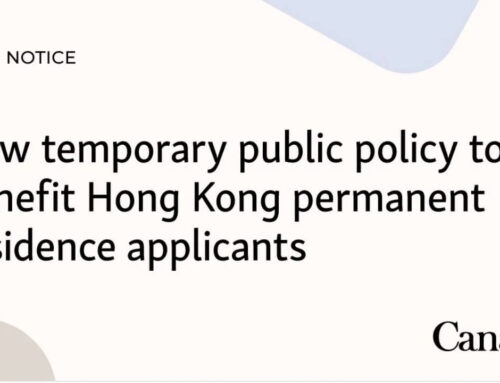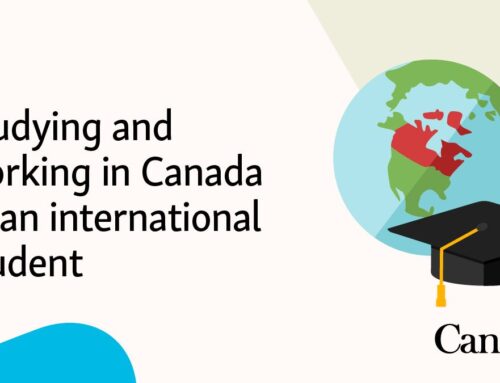How to improve your Express Entry CRS Score
Candidates from the Federal Skilled Worker (FSW), Canadian Experience Class (CEC), Federal Skilled Trades (FST) and Provincial Nominee Program (PNP) are eligible to receive an Invitation to Apply (ITA) for Canadian permanent residency under the Express Entry program. Candidates, however, must obtain a high Comprehensive Ranking Score (CRS) in order to be competitive against other candidates in the Express Entry pool.
Applicants with the highest CRS scores are the most likely to get an ITA, but if your score is not high enough, especially with the recent increase in CRS scores through the Express Entry draws, you will not be competitive enough to receive an ITA. Where traditionally, including the 2020 CRS scores, the mid 400’s were competitive for the FSW program, with the influx of candidates wishing to immigrate to Canada, these CRS scores have gone up to the 500’s in the 2022 Express Entry draws. After the stop in Express Entry draws, the first all-program draw #226 on July 6th selected candidates with CRS scores of 557. While this has steadily decreased (CRS score drop to in draw #234 on October 12, 2022), the ideal candidate pool has shifted significantly in 2022 post-pandemic. Ideal candidates in 2020 for the FSW Express Entry program may no longer be competitive with their CRS scores in today’s Canadian immigration system. As a result, it is now more important than ever to improve your CRS scores and increase your chances to receive an ITA.
CRS components
The maximum CRS score a candidate can achieve is 1,200 points—600 points under core, spousal, and skill transferability components, and 600 points under the additional points components.
An Express Entry candidate can receive a maximum of 600 points under the first four components irrespective of their relationship status. Additional points may be earned for a provincial nomination (600 points), arranged employment (50 or 200 points), Canadian post-secondary education credentials (15 or 30 points), French language proficiency (25 or 50 points), or a sibling in Canada (15 points).
If there are any changes that can increase your CRS score, you must update your Express Entry profile. Scores may change for the following reasons: valid job offer, an increased score on your language test, or an educational credential assessment for any education acquired abroad.
Factors to Maximize your CRS Score
Age – Apply Early
If you apply while you are between the ages of 20-29, you will automatically receive 110 CRS points. Starting at age 30, the number of points for age gradually decreases until age 45, which is 0 points.
Improve your Language Score
Language proficiency is a very important factor because you are able to score points for two languages, French and English. Candidates are evaluated based on four abilities: reading, speaking, listening, and writing. Each ability is given a separate Canadian Language Benchmark (CLB). Candidates in the FSWP must have a minimum of CLB 7 in reading, speaking, listening, and writing to even be eligible for Express Entry. For each level between CLB 6 and CLB 9 your score may improve up to 8 additional points per ability.
By having French language proficiency, you can earn up to 6 points for each ability for your second language. If French is your first language, you must obtain a score of NCLC 7 or higher on all four French language skills. You can get up to 50 additional points with an NCLC 7 and CLB 5.
Foreign Work Experience
Having foreign work experience will add skilled work experience to your CRS score. This, when combined with a high CLB, will further improve your CRS score. Having more than a year of foreign work experience in your field of occupation can increase your CRS score up to 13 points with a CLB 7. If you have two years or more of foreign work experience, you can get up to an additional 25 to 50 points.
The same rule applies if you have some work experience in Canada. One year of Canadian work experience along with one year of foreign skilled work experience can net an additional 13 CRS points and up to 50 if you have more than two years of each.
Canadian Work Experience
A very important factor, Canadian work experience, offers up to 80 additional CRS points depending on the number of years of work experience. Just one year of work experience in a skilled occupation in Canada is 40 points. A common way to gain Canadian work experience is to study in Canada for your post-secondary education and depending on the length of the program, after completing your education you will receive a post-graduate work permit (PGWP) for up to three years.
PGWP policy has been changing consistently post-pandemic. One of the recent changes is the lifting of 20-hour restrictions on the number of working hours during school, as well as 18-month PGWP extensions for students already in Canada with expiring permits till then end of the year.
Additional Education
With a certificate, diploma, or degree for post-secondary education of three or more years, you earn 112 CRS points. You are able raise your score to 119 points if you complete an additional one-year program and obtain another certificate, diploma, or degree.
Sibling in Canada
If you have a Canadian citizen or permanent resident sibling residing in Canada, you may be able to score another 15 CRS points.
PNP Certificate
Some provinces have enhanced PNP programs where they will actively search the Express Entry pool for candidates who will benefit and contribute to the provincial labour force. Some provinces provide information on those selected for nomination The Ontario Immigrant Nominee Program (OINP) is very active in selecting their candidates from the Express Entry pool and to publish their draw results.
Getting a provincial nomination can increase your CRS by 600 points, which ultimately guarantees you an invitation.
If you are interested in the Express Entry program and would like to determine your eligibility, send us an email to info@poonahimmigrationlaw.com





